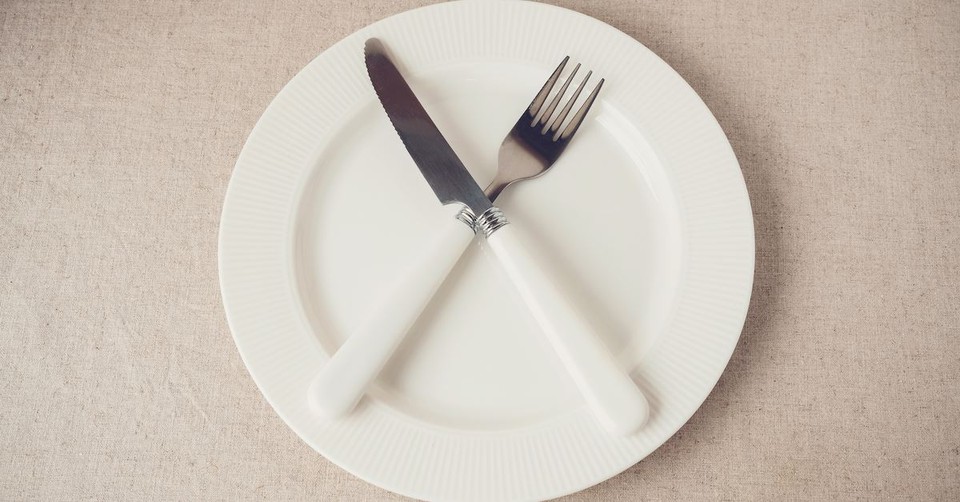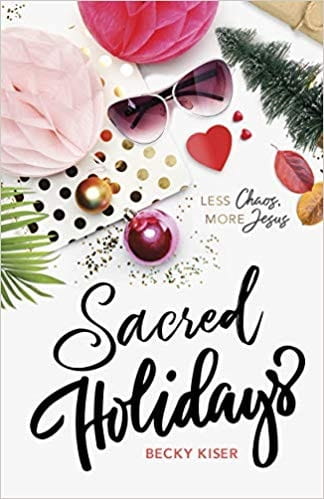It's Not Too Late to Choose a Lenten Fast

If you want to be known for more than just your dress, what’s filling up your baskets, or what food you are eating on Easter Sunday, then I highly encourage you to try observing Lent through some common practices this year. Easter can be more than just a day that draws you closer to Jesus and celebrates His life; it can become the most significant season of the year for growing your faith. So many of us show up on Easter stressed, slightly sugar-crazed, and disengaged from the power of that day: Christ’s substitutionary sacrifice for our sins and defeat of death. Because Jesus lives, not only are our sins washed clean by His blood shed on the cross, but we also have the right through salvation to a resurrected life in Jesus!
Easter is about celebrating that we were once dead in our sin, but Christ has made us alive (Ephesians 2:5). One of the best ways I have found a deeper meaning into this most significant Christian holiday is to start before the day comes by observing the season of Lent. I’m not sure about you, but I honestly didn’t know I could observe Lent. I had incorrectly assumed that this was a liturgical holiday associated with a few select denominations. What I’ve found is that these days leading up to Easter, as I observe Lent, have become some of the most significant days of my entire year. This is my hope for you: that this Easter, and the days leading up to it, are the most spiritually significant you’ve had yet. It’s possible, so let’s get started!
Lent technically begins on Ash Wednesday, February 26 this year. However, do not let dates keep you from starting this today. Any day is a good day to start intentionally leaning into Jesus! As I encourage readers often in Sacred Holidays: Less Chaos, More Jesus, we want to take baby steps into making our holidays more sacred—holy and set apart. What that means is that you will not, and should not, do all the things the first time you try to observe Lent. My top three recommendations for observing Lent are to choose a Lenten fast, use Lenten candles, and go through a Lenten Bible study. We go through all of these practices and more on the sacredholidays.com website as well as in the Sacred Holidays book.
Today, though, I want to encourage you to begin the easiest-to-start Lenten practice: fasting. This is something you can do the moment you finish reading this article. We fast as a way to step into the same suffering of Jesus when He fasted in the desert (Matthew 4) but also as a way to remind us of our great need for God. Fasting is something the early church practiced (Acts 14:23), and Jesus assumed that we would be fasting (Luke 5:35). In addition to biblical encouragement to fast, I have found it to be a personally enriching time; it helps me be consistently fixated on the aim of my fast. For Lent, it’s to lean into Jesus.
There isn’t one right or wrong way to fast! Know that you don’t have to avoid food for 40 days like Jesus did (in fact, I’d discourage this type of fast initially, and it’s something you’d only want to do under proper medical supervision). I find it best to fast from things that are addictions, idols, distractions from time with Jesus, or are simply things that you love. Here are some examples of fasts I’ve done or heard of:
- Addictions: One of my best friends is addicted to diet soda. It doesn’t matter that she is the most all-natural person in every other capacity of her life; she cannot function without diet soda. It’s the thing she feels like is the greatest sacrifice she can give to the Lord. Is there a food or beverage that you feel like you can barely function without? Coffee? Chocolate? If any of those things make you say, I could never live without it! then you might have just identified the perfect thing for you.
- Distractions: I’ll often ask myself, What’s keeping me from spending time with the Lord? In past years I gave up the snooze button (in fact, I actually put my Bible on top of my alarm clock so I had to choose to snooze over spending time with the Lord). Other years, I’ve given up social media, or just delayed logging onto social media until after I’d connected with God that day. Other years, I’ve given up watching TV of any kind when I’m at my own house. What about you? What is something you do that if you removed it from your daily habits, you’d all of a sudden have more time to spend with the Lord in prayer and Bible study? Consider fasting from that or doing a partial fast, like restraining yourself from it until you’ve connected with the Lord.
- Idols: Other years I’ve asked myself, What’s something I’ve made an idol out of? In high school, vanity was a big struggle for me. So I fasted from makeup. I couldn’t wear it to anything, no matter how important the event. What’s that for you? Maybe it’s comparing yourself to your friends on Facebook. What is something that you give too much value to? (Often times, what we idolize is also something that’s a distraction. Hopefully, by now you have been able to identify something that keeps popping up).
- Doing something instead: Finally, some people choose to do something instead of fasting or withhold from consuming. I will say this takes a lot of self-discipline and commitment, so only do this if you feel like you could stick to it. This could be something as simple as looking for ways to intentionally love others well (from Jesus’ instruction that the second greatest command is to love others in Matthew 22), such as sending someone a note of encouragement each day or not raising your voice with family members. You could also start a new prayer time commitment or Scripture reading time.
As you can see, there are many ways to fast, and there isn’t one right or wrong way to do this. However, be encouraged and challenged by the instruction we find about fasting in Matthew 6:16-18, “And when you fast, do not look gloomy like the hypocrites, for they disfigure their faces that their fasting may be seen by others. Truly, I say to you, they have received their reward. But when you fast, anoint your head and wash your face, that your fasting may not be seen by others but by your Father who is in secret. And your Father who sees in secret will reward you.” Your fast will be challenging; it’s supposed to be. However, be intentional to not let it bring you down and affect the way you carry yourself. We don’t fast to gain attention from others. We fast to gain intimacy with the Father.
I’d love to hear from you and follow along on your Lenten journey! Share online anything you implement or learn by using the hashtag #sacredholidays and tagging Crosswalk and Sacred Holidays on your post! We would love for our communities to learn from you!
To learn more about fasting during Lent watch this video from Becky Kiser.
If you were encouraged by these words, grab your copy of Becky’s book, Sacred Holidays: Less Chaos, More Jesus, sold everywhere books are sold online and in Lifeway stores.

www.beckykiser.com// @beckykiser
www.sacredholidays.com// @sacredholidays
Photo credit: ©GettyImages/ThitareeSarmkasat
Originally published March 07, 2019.







